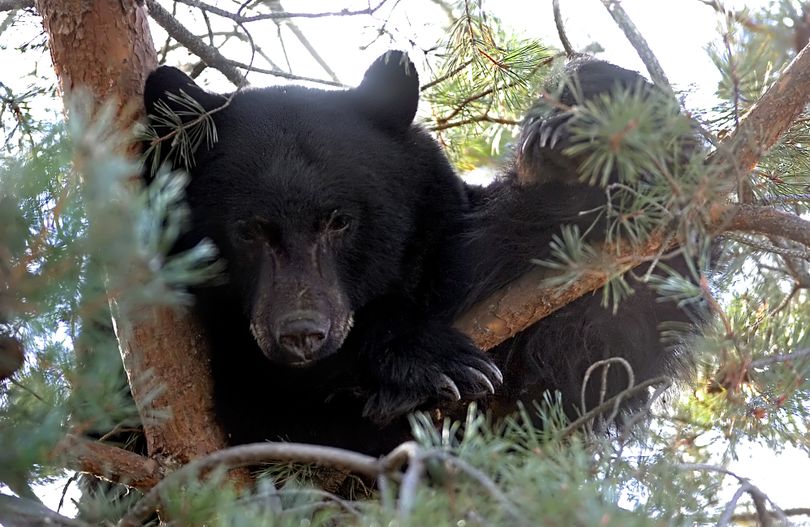Man killed by bear likely interrupted feeding

BEAR ATTACKS -- Hikers and hunters who venture into bear country can benefit from reading investigations of bear attacks. Here's a report on the most recent investigation of a bear mauling in the Northern Rockies.
CHEYENNE, Wyo. (AP) — A panel of wildlife experts has concluded that a Utah man mauled to death in a remote area of northwest Wyoming in September likely happened upon a bear feeding on a deer.
“We think the attack was a combination of two things — that the bear was on a carcass and the bear was surprised at close range,” Chris Servheen, grizzly recovery coordinator with the U.S. Fish and Wildlife Service and a member of the panel, said Friday. “Either one of those types of encounters can provoke a charge and an attack by the bear.”
The panel found evidence of both grizzly bears and black bears at the site where Adam Stewart, 31, of Virgin, Utah, was killed on Sept. 4. In addition, the area where the attack occurred is forested and hilly, and Stewart may not have seen the bear until he was 15 to 20 feet away, it said.
“It’s not real easy to see in that area,” Servheen said.
They can’t determine what kind of bear killed him because of the condition of his body and the presence of both kinds of bears in the area, Servheen said. Stewart’s body wasn’t found until eight days after the mauling in the Bridger-Teton National Forest, bears had fed on his body and his remains were mixed in with deer remains.
Stewart was employed by a Boise, Idaho, company, Nature’s Capital, which the U.S. Forest Service had hired to conduct vegetation surveys.
He was working alone and didn’t have bear spray or a firearm with him.
While it’s impossible to know whether bear spray would have prevented the attack, Servheen said he was surprised that Stewart didn’t have bear spray with him in an area known to be grizzly bear habitat.
“We recommend to everybody that they carry bear spray and we also recommend that people don’t hike alone,” he said.
It is believed that Stewart was an experienced backcountry hiker.
Investigators determined that Stewart was attacked and killed on the day he hiked into the forest. Evidence, which includes a time stamped photograph from Stewart’s camera, indicates he had set up camp and was hiking to a research plot site 3 miles away when the encounter with the bear occurred.
